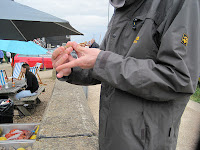Nouwen: reconciliation in us!
Amazing thoughts on reconciliation by Nouwen.
"When we are free from the need to judge or condemn, we can become safe places for people to meet in vulnerability and take down the walls that separate them. Being deeply rooted in the love of God, we cannot help but invite people to love one another. When people realise that we have no hidden agendas or unspoken intentions, that we are not trying to gain any profit for ourselves, and that our only desire is for peace and reconciliation, they may find the inner freedom and courage to leave their guns at the door and enter into conversation with their enemies."





